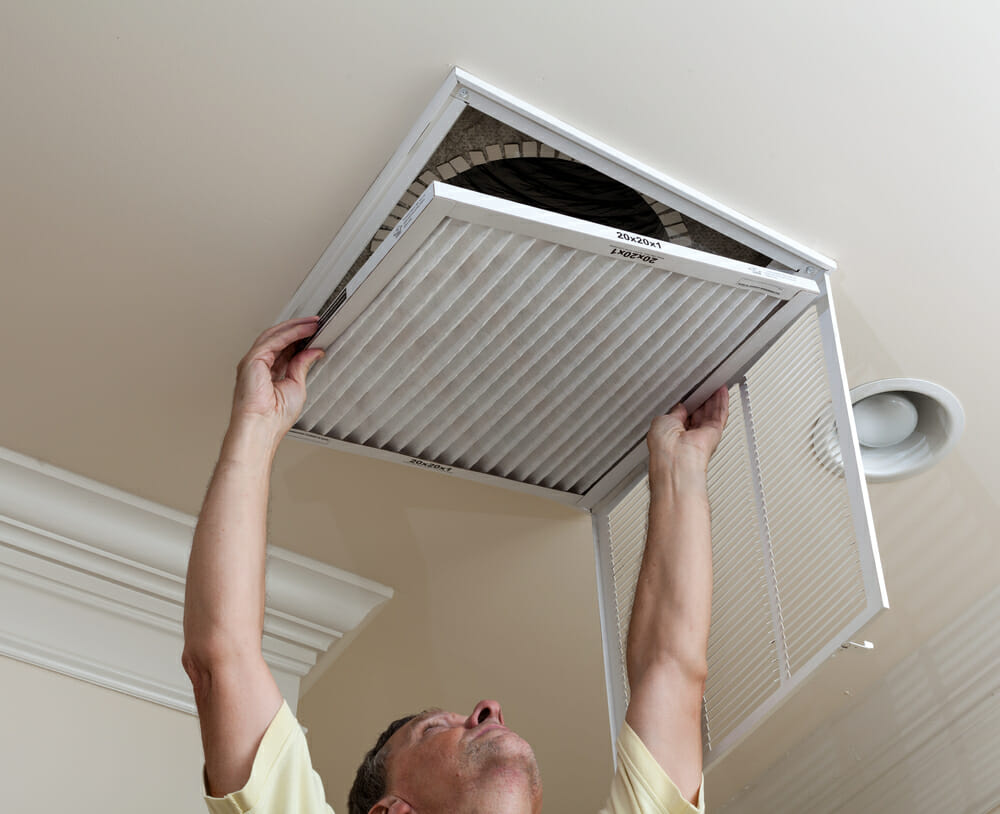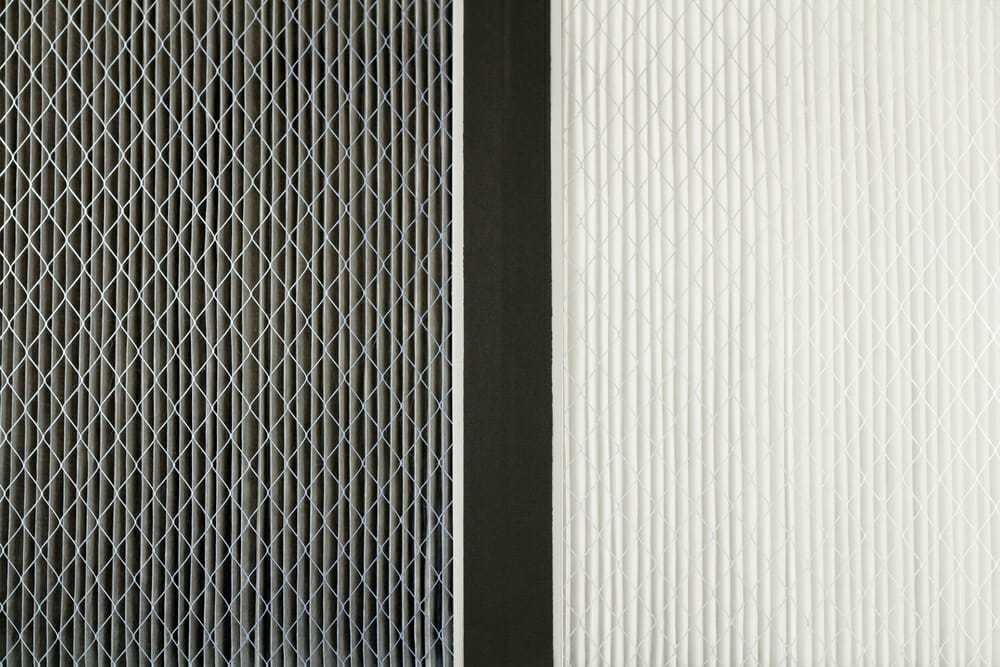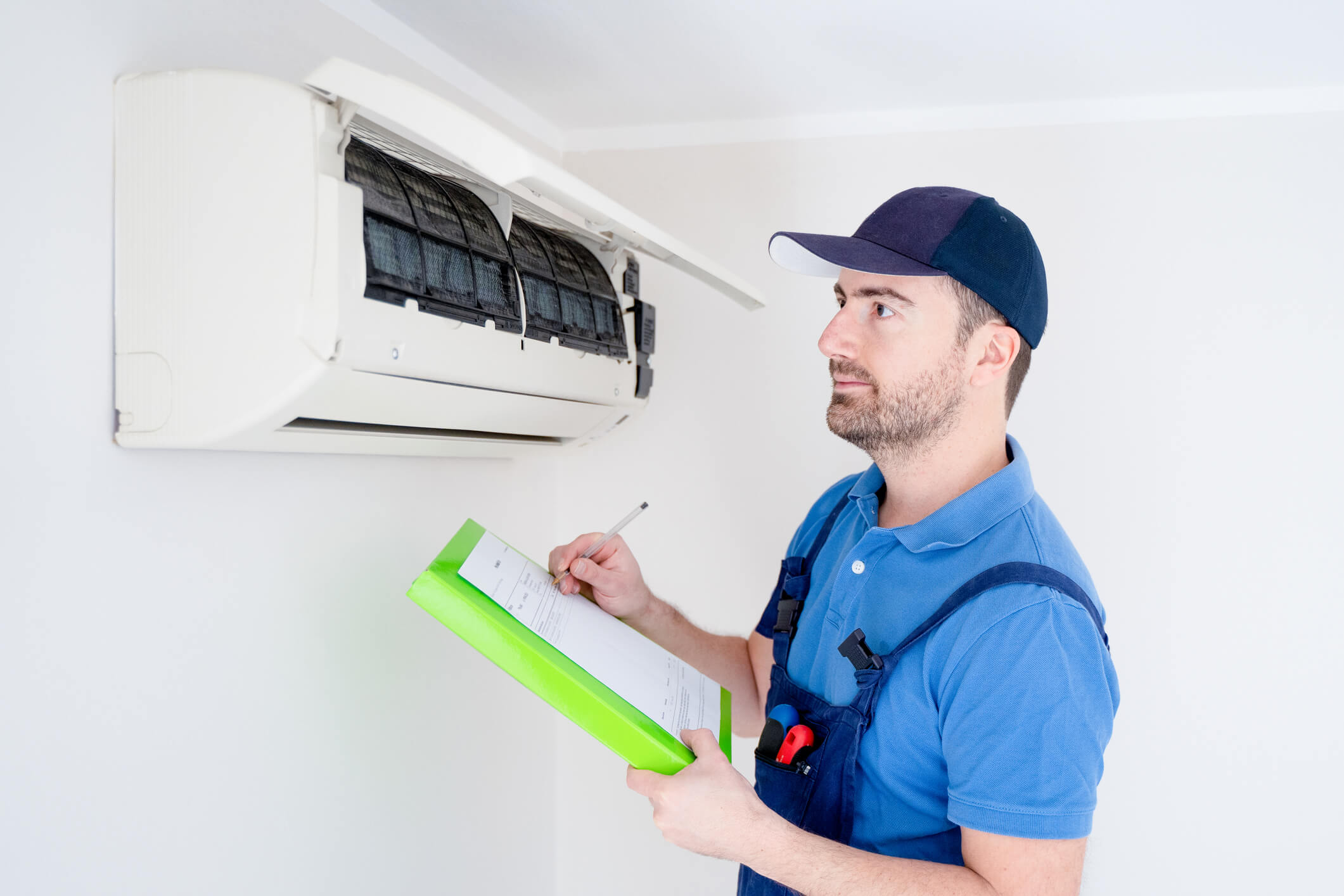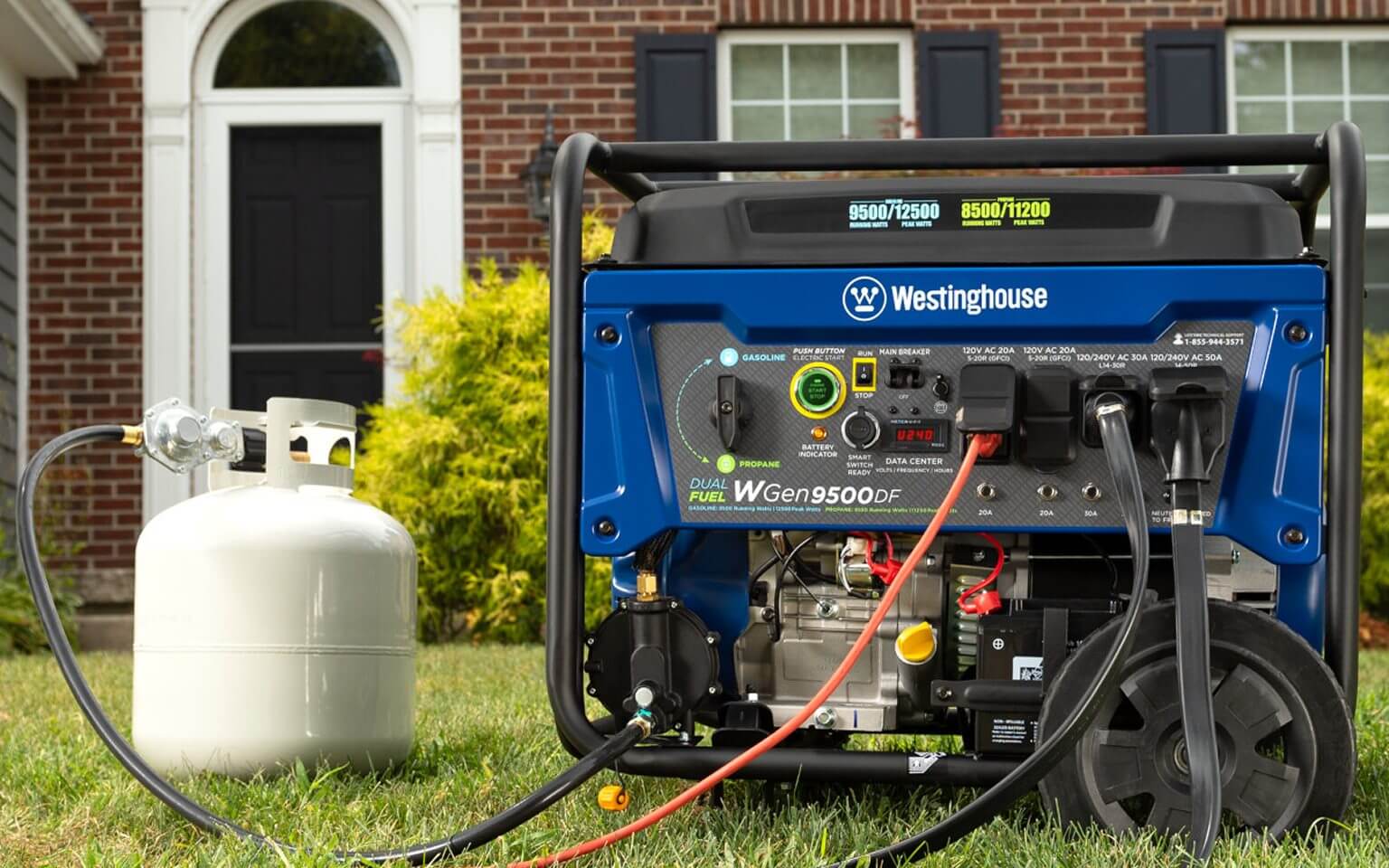Are you doing an HVAC project?
Modernize can pair you with three to four pros in your area, so you can compare options and save time and money.
Many homeowners visit their local home improvement center to purchase a new HVAC filter and find a massive wall of filters in various sizes, types and efficiency ratings. Purchasing the right sized filter that meets your filtration requirements can be a daunting task — this post will explain the different HVAC filter options available as well as important things to consider before upgrading to a more efficient filter.

Importance of Regular HVAC Filter Maintenance
HVAC filter cleaning or replacement is a highly important element of HVAC system maintenance. The task is easy and one most homeowners can perform themselves. Cleaning or replacing your HVAC filter regularly helps to maintain HVAC performance and energy efficiency. In addition, a clean filter helps to reduce costly repairs caused by the additional strain put on your system and it’s components as it struggles to condition and circulate air through a dirty filter.
Understanding MERV Ratings
Find the Right Contractor for Your HVAC Project
Whether you’re ready to begin your project now or need some expert advice, our network of contractors are here to help. With a few simple questions, we’ll find the best local professionals for you
- Between 1 and 4: Low-grade HVAC filters such as spun-fiberglass or washable filters carry a MERV rating of between 1 and 4 at best. While these filters will trap pet hair, carpet fibers, and other large debris, they are ineffective when it comes to improving indoor air quality.
- Between 5 and 8: Filters with this rating offer improved filtration and are capable of trapping particulates between 3 and 10 microns or larger such as mold spores, pet dander, and pollen less than 10 pm particles.
- Between 9 and 12: These filters provide superior filtration in residential applications and can trap lead dust, Legionella — 1 to 3 pm particles — and auto emissions.
- Between 13 and 20: Filters that fall between these MERV ratings can trap tobacco smoke, bacteria, and particulate less than 0.30 pm particles.
Choosing the Correct MERV Rating

When choosing a filter replacement for your HVAC system, it is very important that you do not exceed the recommended MERV rating that your system was designed to handle. High-MERV filters, while very effective at air filtration, have a negative impact on system airflow due to their density. This can cause air leakage within the system in areas — return ducts, plenums, and cabinets — where there is less resistance. In addition, a high-performance filter can lead to increased energy use, more wear and tear on the system, and the chances of coil freezing. If you are unsure of the maximum MERV rating for your HVAC system, contact your heating and air conditioning contractor or manufacturer.
Types of HVAC Air Filters
Air filters utilize porous membranes that maintain airflow while trapping air borne particles such as pet dander, pollen, dust mites, and even some mold spores. There are several types of filters designed for HVAC applications.
- Flat-Paneled Fiberglass Filters: These filters are on the low end of the MERV ratings listed above. The disposable filters contain layered fiberglass and a metal reinforcing grate to prevent collapsing often surrounded by a cardboard frame. While the inexpensive filters protect HVAC components, they offer little when it comes to air purification.
- Pleated Media Filter: These filters are also disposable and carry a MERV rating of between 5 and 13 with high-efficiency versions rating between 14 and 16. The pleats are designed to increase the surface area of the filter, which in turn, raises its filtration efficiency. While a pleated filter falls short in its air filtration efficiency when compared to HEPA filter, they provide less airflow resistance and are effective at suppressing fan noise at a lower pricing point.
- HEPA Filter: HEPA filters provide the highest level of protection against air borne particles according to the Occupational Safety and Health Administration as well as the Environmental Protection Agency. The filters are capable of trapping particles as small as 0.3 microns or larger and catch 99.97% of air borne particles. HEPA air filters carry a MERV rating of between 17 and 20. It must be noted that most residential systems cannot support a HEPA filter due to its size and airflow restrictions without modification from an HVAC contractor.
- Reusable Air Filters: Another HVAC filter option is a washable or reusable air filter. While this type of filter is more expensive than its disposable counterpart, it can be reused after a simple cleaning. Drawbacks include a low MERV rating of between 1 and 4 and the chances of attracting mold and/or mildew growth from installing a still damp filter.
Find the Right Contractor for Your HVAC Project
Whether you’re ready to begin your project now or need some expert advice, our network of contractors are here to help. With a few simple questions, we’ll find the best local professionals for you
Reviews from Real Homeowners
Welcome to Homeowner Resources! We are the Modernize blog. Modernize pairs more than 3 million homeowners a year with pre-vetted contractors in their area. This blog started because we believe homeowners should know everything about their homes, from how their HVAC works to which front door colors they might love. On Homeowner Resources, you can find information on every part of your home, right down to how you can negotiate with contractors to get the best price. Here's more about the blog.
Need a contractor? Learn more about how Modernize finds the right pro for you.


